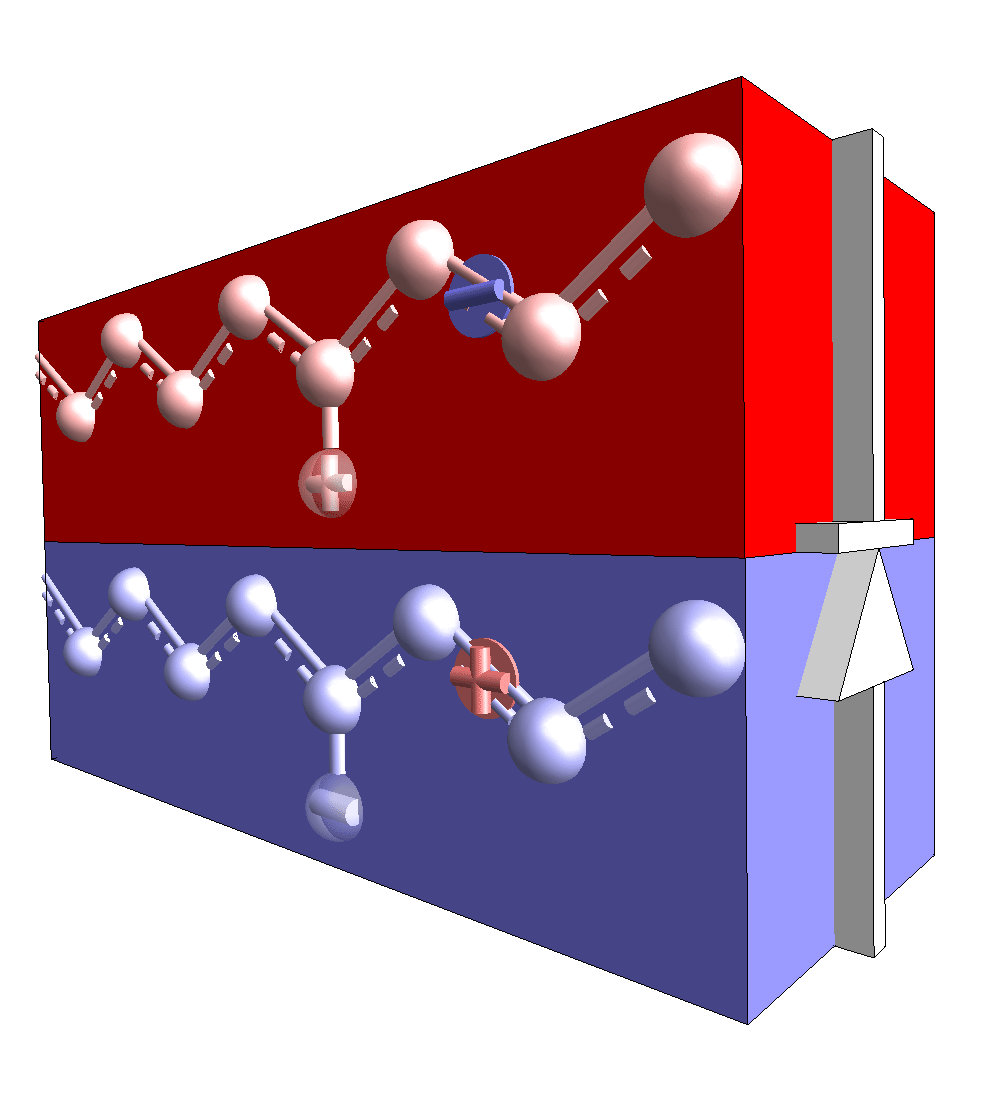
Mark Lonergan
Education
B.S., University of Oregon, 1990. Ph.D., Northwestern University, 1994 (Duward F. Shriver and Mark A. Ratner). Postdoctoral: California Institute of Technology, 1994–96 (Nathan S. Lewis). Honors and Awards: NSF Predoctoral Fellow, 1990–93; A. A. Noyes Postdoctoral Fellow, 1995; ACS/Proctor and Gamble Graduate Award in Physical Chemistry, 1995; Dreyfus New Faculty Award, 1996; NSF CAREER Award, 1997; Beckman Young Investigator Award, 1998; Camille Dreyfus Teacher-Scholar Award, 2001. University of Oregon Tykeson Teaching Award, 2016. At Oregon since 1996.
Research
Research in the Lonergan group blends synthesis, physical measurement, numerical simulation and rational design to better understand or discover interesting electrical and electrochemical phenomena in solid-state systems. We are particularly interested in using chemistry to control interfacial electron transfer processes, which can depend on applied bias in complex, nonlinear, and often asymmetric ways. Practical impetus for our work comes from the importance of electroactive interfaces to many devices for the useful manipulation of electrical energy including solar cells, batteries, fuel cells, and logic gates. Current projects include the fundamental study of charge transfer processes at semiconductor interfaces toward the development of more effective contacts for photovoltaics, the characterization of the electronic signatures of defect states in absorber materials in an effort to better understand the origins of deleterious recombination processes in photovoltaics, the study of dynamics of photoexcitations in novel semiconductor materials using two-dimensional electronic spectroscopy (in collaboration with Andy Marcus), and the study of charge carrier transport and polarization in novel electronic and ionic conductors (in collaboration with Ramesh Jasti and Cathy Page).
The Lonergan group is made up of researchers with diverse backgrounds ranging from synthetic organic chemistry to applied physics. Students in the group draw on classic topics from chemistry (physical, organic, and inorganic), physics and more specialized areas such as polymer chemistry, electrochemistry, and semiconductor device physics. Major tools used by the group include a wide variety of electrical and electrochemical methods, organic and polymer chemistry, techniques for molecular and polymer characterization, numerical simulation, and a range of surface analytical and imaging tools. Please visit the lab website to learn more.

Organic semiconductor interfaces have been one focus of our work. This image is a representation of an interface based on dissimilarly doped conjugated polymers, which forms a diode and photovoltaic.
